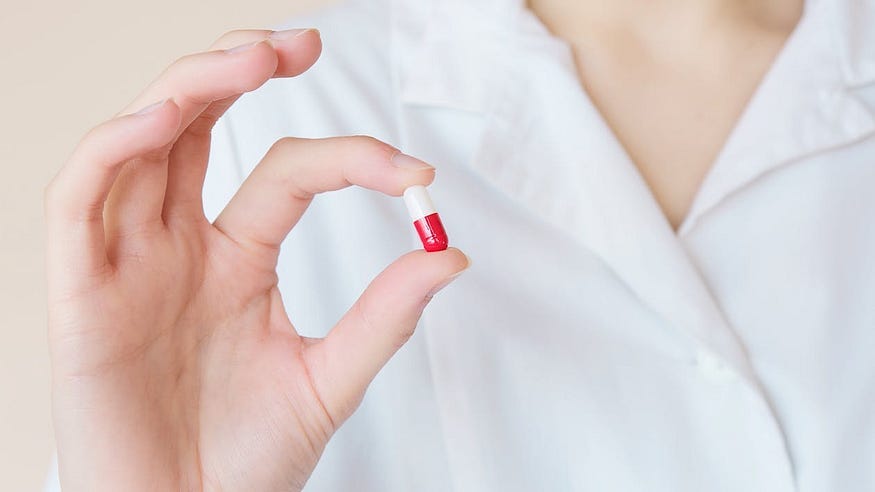Is Taking This Enzyme as Effective as a Statin?
Nattokinase may thin blood, lower blood pressure and stop arterial plaque.

As I wrote about recently, natto is one heck of a superfood. The only non-super thing about it can be its texture and taste. But, if you can get over that, the health benefits are significant. One reason is its probiotic nature and the fact that the particular bacteria form spores. These spores have an easier time surviving in your gut before making it to your large intestine where they add to your microbiome.
In addition to the gut benefits, natto has a beneficial effect on cardiovascular health. The main enzyme, called nattokinase, is the most active ingredient in natto and is responsible for many of the positive effects. Not only does it help to thin the blood (meaning less atherosclerosis) but it also helps with blood pressure and lipid levels.
I know. Sounds too good to be true.
But we need solutions. Statin prescriptions keep going up along with the incidence of heart disease. If a cheap nutritional supplement can help reduce deaths from the number one killer of people, I am all for it.
Clot destroyer
Nattokinase was discovered in 1987 but natto has been eaten for thousands of years in Japan. Since the discovery of this enzyme, there have been numerous studies that show its antithrombotic properties. In other words, it is a clot buster.
One study demonstrated an increase in tissue plasminogen activator (tPA) which is commonly used to break up the clots that cause strokes. This is the medication that makes rapid stroke identification so important. It can only be given in a certain window of time. Another study showed that nattokinase promoted tPA by breaking down the inhibiting factor that prevents tPA from becoming active. It even has properties that slow platelets from clumping, without increasing the risk of bleeding. This is important as platelets play a role in the progression of atherosclerosis.
If nattokinase is able to slow the progression of plaque formation and reverse atherosclerotic lesions, it should have some effect on both cholesterol levels and blood pressure.
Effect on lipids and blood pressure
Statins are prescribed when cholesterol meets a certain threshold along with risk criteria such as high blood pressure and diabetes. Thankfully nattokinase has beneficial effects on both lipids and blood pressure. The effect on glucose is not as well documented.
In the first randomized control trial using nattokinase for blood pressure, a standard daily dose of 2000 fibrinolytic units (FU) reduced blood pressure by 5/3 points in an 8 week period. Another review of 6 studies showed a similar result.
When a person has high cholesterol along with high blood pressure, the negative effects are compounded. So it is great news that in one study of 82 people, nattokinase showed a decrease in total cholesterol, bad cholesterol (LDL), and an increase in good cholesterol (HDL). This beneficial effect was re-demonstrated in a much larger study of 1062 people. But it was the dose that made the difference.
Dosing is the issue
The dose in the study was relatively high at 6000 FU. This is three times the standard dose. However, I am not sure how they came up with that dose other than it being the average amount of nattokinase in a serving of natto.
One study of over 1000 people demonstrated that doses as high as 10000 FU were not only effective but also safe. There is no concern for toxicity when adults take 1,000–14,000 FU daily, and no toxic side effects have been observed in rats using higher doses of 22,000 FU/kg/day, equivalent to 1.43 million FU daily in humans. Importantly, there are no cases of toxic effects or serious side effects reported using higher doses.
This is important since a dose of 3600 FU was not effective in reducing atherosclerotic plaque or bad cholesterol. So with the standard dose being 2000 FU, and studies showing it is ineffective, it is important to understand the effective dose seems to be 6000 FU and up.
Should you take nattokinase?
The data looks pretty good. It is not a slam dunk but at the very least it does not seem harmful even at higher doses. The benefits far outweigh the risk in the available studies.
My mom recently started taking nattokinase since she is unable to tolerate natto itself. I want to see how her upcoming lipid panel will look as she has had high cholesterol for a long time and is on a statin.
While I think it is amazing that supplements exist that may have a similar benefit to prescription drugs like statins, I would love to see more research on nattokinase. That being said, I am heartened by the fact it has been eaten in natto for thousands of years. If it was dangerous, I think we would know by now.
Disclaimer: This is not medical advice. This article is purely informational. Please talk to your doctor before starting or stopping any supplements, medications or making dietary changes.




